Proving medical malpractice
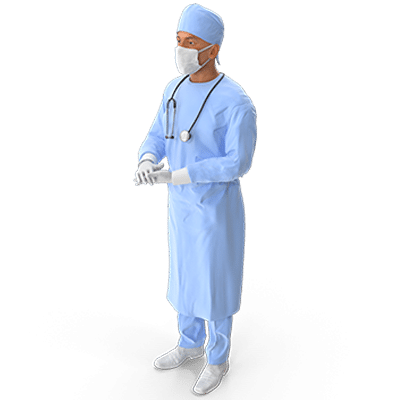
A patient must prove that a doctor did not act as a reasonably prudent medical professional would have done.
A medical malpractice case against a doctor is a generic term for what may technically be an administrative complaint, a civil suit for damages (under Article 2176 of the Civil Code), a criminal case (under Article 365 of the Revised Penal Code), or all three.
How is medical malpractice proven? Conversely, how does a doctor defend herself from such a charge?
Jurisprudence on the Liabilities of Doctors
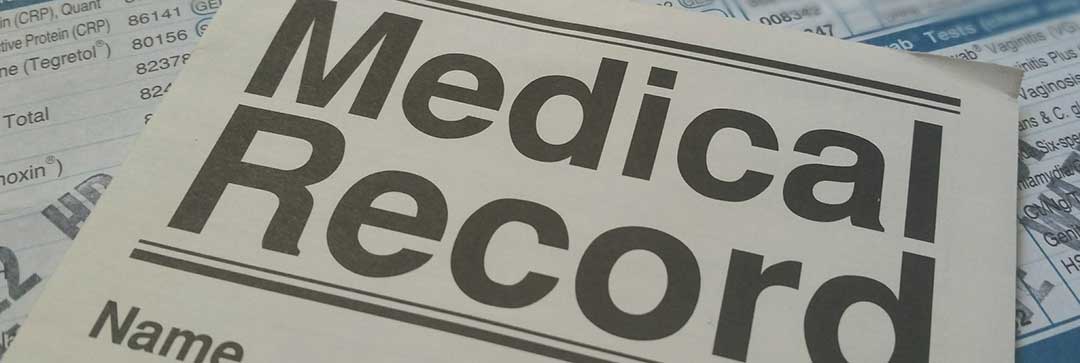
What is medical malpractice?
For one, the mere fact of an unfortunate or even tragic outcome is often insufficient proof of a doctor’s negligence.
In 1997, the Supreme Court affirmed that:
Doctors are protected by a special rule of law. They are not guarantors of care. They do not even warrant a good result. They are not insurers against mishaps or unusual consequences. Furthermore they are not liable for honest mistakes of judgment . . .
Dr. Ninevetch Cruz vs. Court of Appeals and Lydia Umali, G.R. No. 122445, November 18, 1997
Other cases show how a medical malpractice case is proven. We see from these cases that Courts tend to defer to evidence presented by experts — medical physicians or surgeons — about whether the actions of a doctor were in line with professional standards and practices.

A patient must prove that a doctor did not act as a reasonably prudent medical professional would have done.
The type of lawsuit which has been called medical malpractice or, more appropriately, medical negligence, is that type of claim which a victim has available to him or her to redress a wrong committed by a medical professional which has caused bodily harm. In order to successfully pursue such a claim, a patient must prove that a health care provider, in most cases a physician, either failed to do something which a reasonably prudent health care provider would have done, or that he or she did something that a reasonably prudent provider would not have done; and that that failure or action caused injury to the patient.
This Court has recognized that medical negligence cases are best proved by opinions of expert witnesses belonging in the same general neighborhood and in the same general line of practice as defendant physician or surgeon. The deference of courts to the expert opinion of qualified physicians stems from the former’s realization that the latter possess unusual technical skills which laymen in most instances are incapable of intelligently evaluating, hence the indispensability of expert testimonies.
Dr. Rubli Li vs. Spouses Soliman, G.R. No. 165279, June 7, 2011
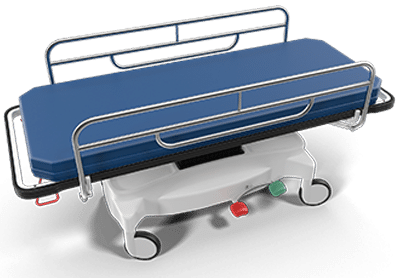
Another doctor’s testimony is needed as evidence to provide the technical expertise the court lacks.
Whether or not a physician has committed an “inexcusable lack of precaution” in the treatment of his patient is to be determined according to the standard of care observed by other members of the profession in good standing under similar circumstances bearing in mind the advanced state of the profession at the time of treatment or the present state of medical science. In the recent case of Leonila Garcia-Rueda v. Wilfred L. Pascasio, et al., this Court stated that in accepting a case, a doctor in effect represents that, having the needed training and skill possessed by physicians and surgeons practicing in the same field, he will employ such training, care and skill in the treatment of his patients. He therefore has a duty to use at least the same level of care that any other reasonably competent doctor would use to treat a condition under the same circumstances. It is in this aspect of medical malpractice that expert testimony is essential to establish not only the standard of care of the profession but also that the physician’s conduct in the treatment and care falls below such standard. Further, inasmuch as the causes of the injuries involved in malpractice actions are determinable only in the light of scientific knowledge, it has been recognized that expert testimony is usually necessary to support the conclusion as to causation.
Dr. Ninevetch Cruz vs. Court of Appeals and Lydia Umali, G.R. No. 122445, November 18, 1997
Proof of Medical Malpractice
What this means in practice is that, in order to prove a case of medical malpractice against a doctor, evidence of these medical, professional standards need to be presented in Court. A layman’s evidence is not enough. The evidence required typically takes the form of testimony by other doctors in the same or related fields of practice, and of medical literature and regulations have duly proven before the Court. Evidence should also be presented to prove that the doctor failed to abide by these standards. Absent these, a finding of liability can be difficult to sustain.
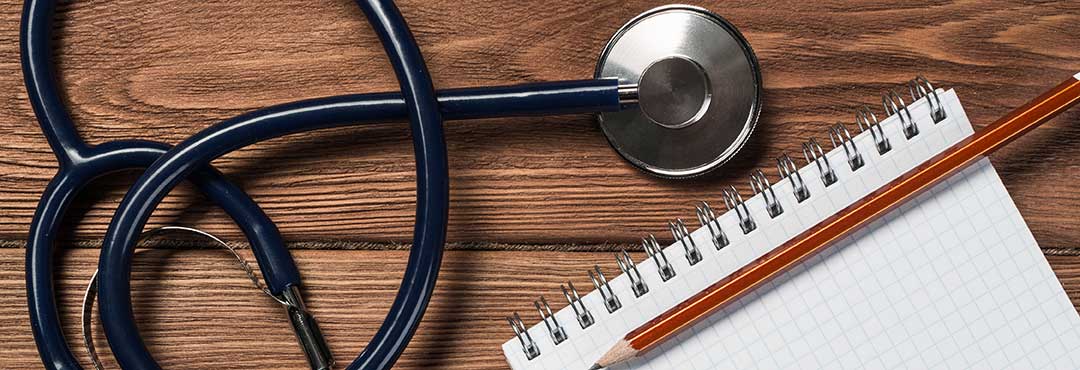
Medical rules and literature can also be presented as evidence.
Conversely, a doctor defending herself from a complaint of medical malpractice or negligence would be well advised to show proof of the standards and particular procedures required by the situation. She should present proof that she followed these standards of care.
An Exception to the Rule of Evidence Against a Doctor (Res Ipsa Loquitur)

Some cases do not need a doctor’s expert testimony as the injury is self evident. This is called res ipsa loquitor.
In these cases, simply the fact of the injury was proven and from this the Court inferred that the doctor is liable for negligence. To do this, the Supreme Court applied the rule of evidence known as res ipsa loquitur, whereby “the thing speaks of itself”. In such cases,
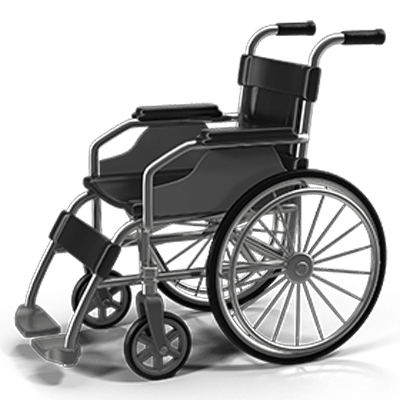
The injury is proof itself.
the need for expert medical testimony is dispensed with because the injury itself provides the proof of negligence. The reason is that the general rule on the necessity of expert testimony applies only to such matters clearly within the domain of medical science, and not to matters that are within the common knowledge of mankind which may be testified to by anyone familiar with the facts. Ordinarily, only physicians and surgeons of skill and experience are competent to testify as to whether a patient has been treated or operated upon with a reasonable degree of skill and care. However, testimony as to the statements and acts of physicians and surgeons, external appearances, and manifest conditions which are observable by anyone may be given by non–expert witnesses.
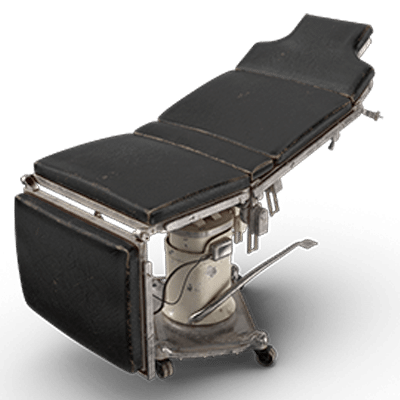
Hence, in cases where the res ipsa loquitur is applicable, the court is permitted to find a physician negligent upon proper proof of injury to the patient, without the aid of expert testimony, where the court from its fund of common knowledge can determine the proper standard of care. Where common knowledge and experience teach that a resulting injury would not have occurred to the patient if due care had been exercised, an inference of negligence may be drawn giving rise to an application of the doctrine of res ipsa loquitur without medical evidence, which is ordinarily required to show not only what occurred but how and why it occurred. When the doctrine is appropriate, all that the patient must do is prove a nexus between the particular act or omission complained of and the injury sustained while under the custody and management of the defendant without need to produce expert medical testimony to establish the standard of care. Resort to res ipsa loquitur is allowed because there is no other way, under usual and ordinary conditions, by which the patient can obtain redress for injury suffered by him.
Thus, courts of other jurisdictions have applied the doctrine in the following situations: leaving of a foreign object in the body of the patient after an operation, injuries sustained on a healthy part of the body which was not under, or in the area, of treatment, removal of the wrong part of the body when another part was intended, knocking out a tooth while a patient’s jaw was under anesthetic for the removal of his tonsils, and loss of an eye while the patient-plaintiff was under the influence of anesthetic, during or following an operation for appendicitis, among others.
Ramos vs. Court of Appeals, G.R. No. 124354, December 29, 1999, 321 SCRA 584, 599, cited in DR. FERNANDO P. SOLIDUM vs. PEOPLE OF THE PHILIPPINES, G.R. No. 192123, March 10, 2014.
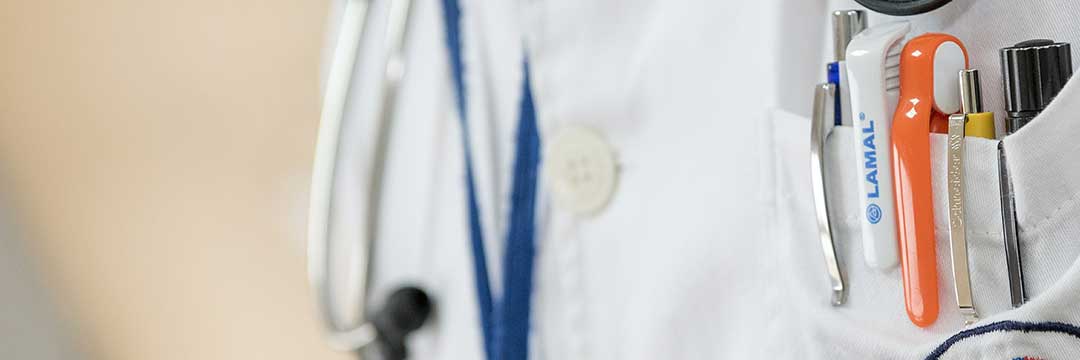
Dispensing with a doctor’s testimony is an exception to the rule.
But it must be borne in mind that the application of the res ipsa loquitur doctrine in medical malpractice cases is an exception to the general rule that evidence from medical experts should be presented to prove a doctor’s liability.
Three Conditions for Res Ipsa Loquitur to Apply
In order to allow resort to the doctrine, therefore, the following essential requisites must first be satisfied, to wit: (1) the accident was of a kind that does not ordinarily occur unless someone is negligent; (2) the instrumentality or agency that caused the injury was under the exclusive control of the person charged; and (3) the injury suffered must not have been due to any voluntary action or contribution of the person injured.
Because of the complexity inherent in many medical cases, a Court would often be at sea in determining whether these conditions all exist in a given case, thus requiring recourse to expert medical testimony.
Indeed, in Dr. Solidum, the Supreme Court ruled against relying on res ipsa loquitur and, ultimately, acquitted Dr. Solidum of both criminal and civil liability because the balance of evidence was not against him.
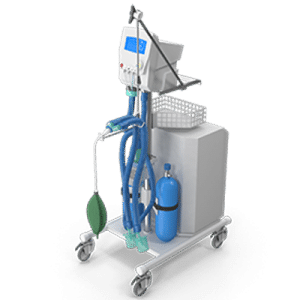
There are 3 guidelines to determine if a case can be classfied as res ipsa loquitor.
In the medical profession, specific norms or standards to protect the patient against unreasonable risk, commonly referred to as standards of care, set the duty of the physician to act in respect of the patient. Unfortunately, no clear definition of the duty of a particular physician in a particular case exists. Because most medical malpractice cases are highly technical, witnesses with special medical qualifications must provide guidance by giving the knowledge necessary to render a fair and just verdict. As a result, the standard of medical care of a prudent physician must be determined from expert testimony in most cases; and in the case of a specialist (like an anesthesiologist), the standard of care by which the specialist is judged is the care and skill commonly possessed and exercised by similar specialists under similar circumstances. The specialty standard of care may be higher than that required of the general practitioner.
The standard of care is an objective standard by which the conduct of a physician sued for negligence or malpractice may be measured, and it does not depend, therefore, on any individual physician’s own knowledge either. In attempting to fix a standard by which a court may determine whether the physician has properly performed the requisite duty toward the patient, expert medical testimony from both plaintiff and defense experts is required. The judge, as the trier of fact, ultimately determines the standard of care, after listening to the testimony of all medical experts.
Here, the Prosecution presented no witnesses with special medical qualifications in anesthesia to provide guidance to the trial court on what standard of care was applicable. It would consequently be truly difficult, if not impossible, to determine whether the first three elements of a negligence and malpractice action were attendant.
These are considerations to keep in mind when preparing for a medical malpractice case.

The evidence presented must be thorough for the case to succeed.
The diligence with which the proper standards of care are presented to the tribunal, and the evidence showing how well these standards were followed, are usually determinative of the case.






Hi! Would this be considered medical malpractice?
I had CAS (Congenital Anomaly Scan) done in a private clinic by a board-certified OB sonologist. They charged PhP3,400 for CAS — a bit higher than other clinics — only to have used a seriously outdated ultrasound machine (what looks like a portable ultrasound machine like Aloka 500, the worst I’ve seen in my life, without any monitors, the screen and printed results barely showing anything worth seeing.) When I asked the sonologist, she said that their other machine is under repair. I asked many other questions that would have been answered in a proper CAS procedure (do you see the facial features, the internal parts of the head, the heart, etc., can you rule out down syndrome, can you check the completeness of the fingers and toes, etc.) but the sonologist would just often say that things like those cannot be seen in a CAS. The results handed to us were incomplete with many items left blank.
Good day,
Before the quarantine period like 10 months ago, i said to the dentist ( the dental clinic has many doctors ) that my tooth hurts , she said it just need a floss but it still hurt. Every month i said that the part of my tooth hurts but they still insist that it just need a floss even though i said that the previous dentist already tried that. Im also wearing a dental braces so my toothache got worst overtime without a proper care and treatment. I also said it multiple times in my monthly dental check-up in every doctor but it seems that they are over looking the problem until now. Is it possible to file a complaint? thank you….
In any medical case, you will need to prove malpratice.
In such a situation, you will need an expert witness who will testify that there was wrongdoing. Finding an expert witness is important to the case but note that the case must be well argued to win.
What is the statute of limitations for medical negligence here in the Philippines? The negligence resulted in my foot getting a bacterial infection requiring amputation.
This can depend on the facts, but 4 years from the time of injury is a prescriptive period that can be associated with negligence.
my wife has undergo surgery for gall bladder removal( laparoscopy ) due to gall stone. And according to doctor the clip will use to close the duct after the bladder remove. Then after that surgery recommended my to eat food slightly and drink water to test the digestion if ok as my wife followed. but after 12 days she feel very painful in her stomach and back. So again we send her to hospital. The because the doctor whom she perform the previous surgery is not available so other doctor check and perform some lab test and even suggested to go for citiscan because they cannot find what is the cause of severe stomach pain. Still they cannot find so as final they recommend for surgical operation again to find out what is the problem. And then finally they find out that the clip that put before by the first doctor had been remove and the food that my wife taken has been leak and came outside her digestive track. also there still stone left in the duct. My wife condition was become critical because some of internal organs has been affected. also I have to pay bill double than the first bill that I pay on the from the first operation. Can I file a complaint for the first doctor. please give advice
Yes, you can file a complaint but you must get the other doctor to testify as to the medical problem to prove that there was fault. Otherwise, it is not likely that the case will succeed.
Hi,
If another doctor is needed to justify that there is a potential negligence.Does that doctor need to attend hearings and such? If we can’t find any doctor willing to testify, can Department of Health help in this case?
Looks like it will be very challenging to get a testimony from another doctor knowing that they would have to be against someone of the same profession as theirs.
Please enlighten as I’m in the process of looking for another doctor who can give second opinion on the case of my newborn nephew.
A doctor as a witness is crucial.
hi,
Can Department of Health help even if its a private hospital? And when you say doctor as witness, meaning the doctor would have to go through the medical abstract and gives her second opinion?
thanks!
The doctor would have to testify and well as affirm other things.
Hi, I had a bone marrow exam last june 2016..Ive been diagnosed with aml last june 2016 but it has been ruled out with another bone marrow exam from a different hospital.. So, as per advise by my hema doc., i borrowed my bone marrow slides and had it reread at another lab and the result is the same, it says aml (acute myeloid leukemia).. But just this month i got curious and looked at my first slides, and found out that one of the slides had different name that was written at the back.. Can i make a complain about this since its been almost 3years already, coz i think there was a mishandling of my slides.. And the misdiagnoses also caused me to spend money and time and has also caused me stress and anxiety..Im hoping a response from you.. Thank you and God bless..
If there was a mishandling of your case, then the actual situation must be examined to see what the issue is and how to support it in court.
A case assessment must first be done where your account and the documents are examined and the strength of the proof is determined.
What if the patient has lung issues and needed undergo surgery ASAP, but the doctor kept on not showing up despite multiple scheduled arrangements? My patient was severely ill, but the doctor has this drerogatory habit of not showing up on many of her appointments, including her many other patients. Will I have grounds for a medical malpractice case?
Dear Bernadette:
It depends.
In these types of cases, it is best to thoroughly understand the facts and the situation.
If medical negligence if found, then a doctor must present evidence.
However, other types of cases can be pursued should the evidence not support medical malpractice.
It will depend on the the facts of the case.
Dear Jasmin:
To file a case, another doctor has to testify that what the doctor did was blatantly wrong.
As such, you must find a doctor to testify to this if you wish to file a case. —- DOES THIS MEAN ANY DOCTOR MAY TESTIFY?
They would likely need a doctor familiar with the type of procedure done.
The problem is the main doctor said even him he doesn’t know the cause of the leak and maybe it is just coincident with the oral medication. I have filed a complain to the office of the president and to the Patient Experience Team.
Now the reached to 2M. My question is will they be able to hold my child in the hospital?
Dear Jasmin:
If you cannot find anyone to testify that there was medical wrongdoing, then you cannot sue the hospital.
Regarding your child, you will have to discuss this with the hospital staff. Aside from just the cost, it may cause him more harm to be moved at the moment.
Hi, there is already a discharge order and the final bill is 1.6M. Currently my complaint to the Hospital is under investigation.
The hospital doesn’t want to release my child. We will issue a promissory note but we don’t have house and lot or car to put as collateral. What do I have to do for them to release my child.
Dear Jasmin:
I am very sorry for the situation.
However, this situation is not something that can be solved through just chatting online. This is a complicated situation and you need someone who can go through all the details so that he can advise as to each item you need done.
Engage a lawyer near you so that he can address all your concerns and needs. He needs to be aware of all the details and facts so that the advice given is pertinent to your situation.
Comment edited for privacy:
My child went for sleeve gastrectomy then the doctor suspected a leak. So he again did the laparoscopy then confirmed that there is no leak. Then they diagnosed that she has pneumonia then the removed the water in the lungs. The following day she was perfectly fine. The main doctor said she may have water and Gatorade. But without the knowledge of the main doctor the pulmonologist gave the oral medication. When I informed the main doctor he asked the nurses to stop the oral education and go back to the iv meds. Then the following day, they said my child is back to NPO because they suspected a leak due to liquid that was drain from her JP. I have a strong feeling that the leak was cause by the oral medication. From March 1 till now my child is suffering in the hospital.
I complained as my bill is very high.
Can anyone help me please.
Dear Jasmin:
To file a case, another doctor has to testify that what the doctor did was blatantly wrong.
As such, you must find a doctor to testify to this if you wish to file a case.
If a child died during the delivery because a) the official OB of the mother was not present b) there are “no other available OB” at the hospital at that time and c) the relievee of the official OB didn’t arrive despite the call. Additional to that, while the mother was inside the delivery room the only staff in there was one nurse. No doctor, no midwife. Just one nurse. It is clearly a medical negligence on the part of the hospital and the doctor right?
for how many years does a criminal negligence from the time of happening, can a plaintiff can sue? Does criminal malpractice lapses?
Hi Dannah,
For a case based on criminal negligence, the prescriptive period depends on the severity of the injury. These range from 5 years for reckless imprudence resulting in serious physical injuries or death, down to only 2 months in the case of reckless imprudence resulting in slight physical injuries.